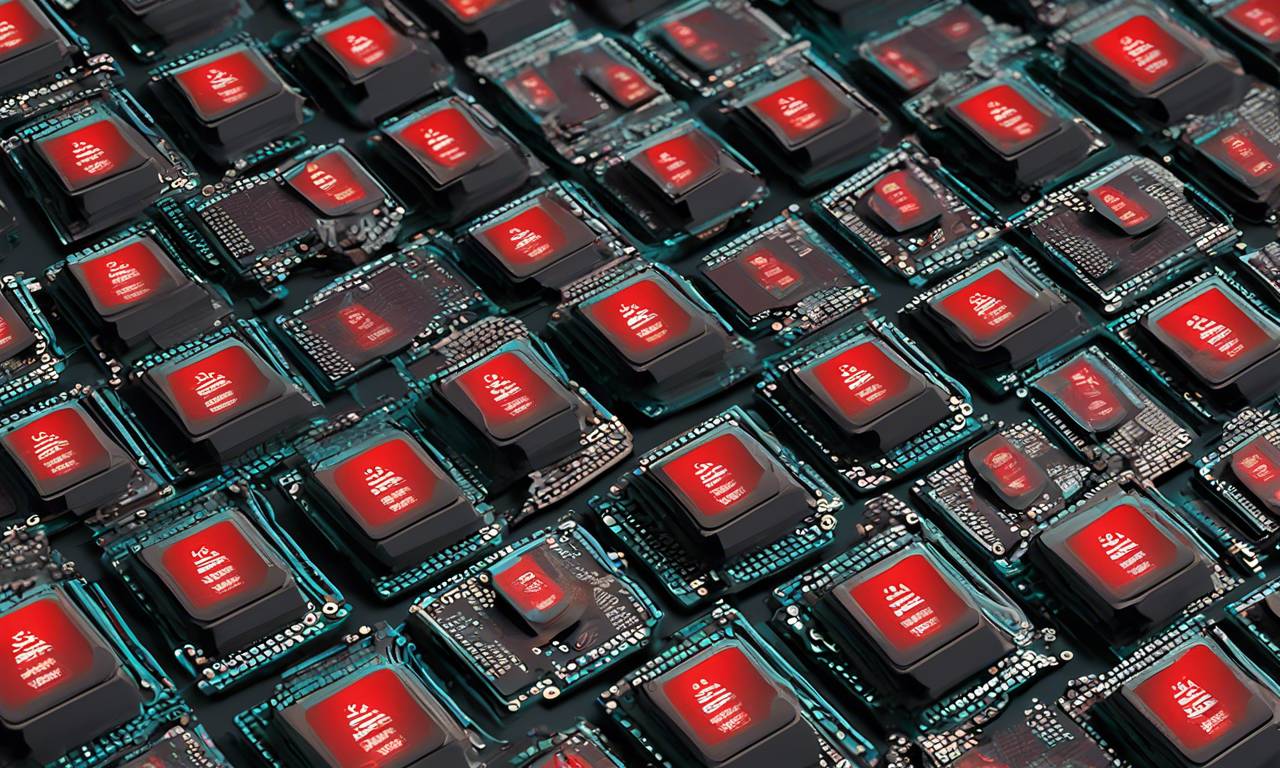AMD Faces Hurdles in Selling A.I. Chips to China
AMD, a tech giant specializing in semiconductor technology, has encountered challenges in selling its A.I. chips to China. U.S. officials have prohibited the sale of AMD’s powerful A.I. chip without a license, as part of the government’s increased scrutiny on advanced technology exports.
Approval for AI-Chip Sales in China
Sources familiar with the matter have stated that AMD is optimistic about obtaining approval from the U.S. Commerce Department to sell its A.I. processor to Chinese customers. The company believes that the performance of this chip is lower than those sold outside of China, making it more likely to receive a license from the Bureau of Industry and Security.
However, AMD has not yet confirmed whether it plans to seek a license, and the Bureau of Industry and Security has declined to comment on the matter.
Roadblock in AMD’s Rivalry with Nvidia
The export control restrictions imposed by the Biden administration have affected not only AMD but also its rival, Nvidia. This setback has hindered their competition in the industry.
Nvidia has responded quickly by introducing a modified model with reduced performance to comply with the export control regulations. On the other hand, AMD has not disclosed its plans to address the decision made by U.S. officials.
The Impact on AI Development and Pioneering
The hurdles faced by AMD in selling A.I. chips to China highlight the challenges encountered by companies involved in artificial intelligence development and pioneering. These obstacles can have significant implications for the global race in A.I., affecting technological advancements and competition among tech giants.
Increased Scrutiny on Exports of Advanced Technologies
The U.S. government’s heightened scrutiny on the export of advanced semiconductor technologies to China reflects its efforts to restrict China’s access to these critical components. This aligns with the export control measures introduced by the Biden administration.
Need for Licenses in Exporting A.I. Chips
The requirement for AMD to obtain a license from the U.S. Commerce Department highlights the regulatory framework surrounding the export of A.I. chips. Companies must navigate this process to ensure compliance with export control regulations and national security concerns.
Uncertainty Surrounding AMD’s Stance
AMD’s decision to not comment on whether it plans to seek a license adds uncertainty to the situation. It remains unclear how AMD will navigate this hurdle and what impact it will have on the company’s sales and market position.
Hot Take: Implications for A.I. Development
The hurdles faced by AMD in selling A.I. chips to China exemplify the challenges encountered in the development and proliferation of artificial intelligence. This situation has several implications:
Global Competition in A.I.
The race for A.I. dominance is intensifying, with companies vying for market share and technological advancements. The restrictions on exporting A.I. chips can disrupt this competition and impact the global landscape of A.I. development.
National Security Concerns
The U.S. government’s increased scrutiny on advanced technology exports stems from national security concerns, particularly regarding China’s access to critical semiconductor technologies. These concerns shape export control policies and influence companies’ ability to sell their products in certain markets.
Innovation and Technological Advancements
The hurdles faced by AMD highlight the complex interplay between regulation and innovation. Striking a balance between safeguarding national security and promoting technological advancements is crucial for the development of A.I. and other advanced technologies.
Future of AMD’s Market Position
The outcome of AMD’s efforts to obtain a license and navigate the export control restrictions will impact its market position. The company’s ability to adapt to these challenges and continue delivering competitive products will be crucial in maintaining its standing in the industry.
In conclusion, AMD’s difficulties in selling A.I. chips to China demonstrate the challenges faced by companies involved in A.I. development. The regulatory landscape surrounding advanced technology exports and national security concerns shape the industry and impact global competition in A.I. The outcome of this situation will have implications for AMD’s market position and the future of A.I. development.





 By
By
 By
By
 By
By
 By
By
